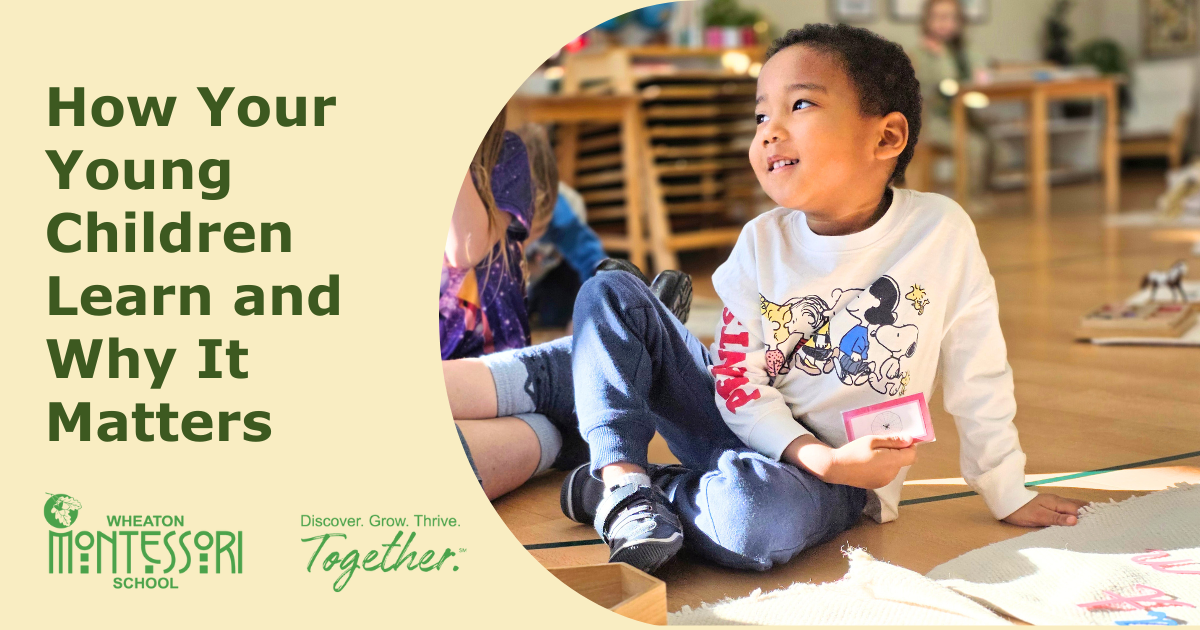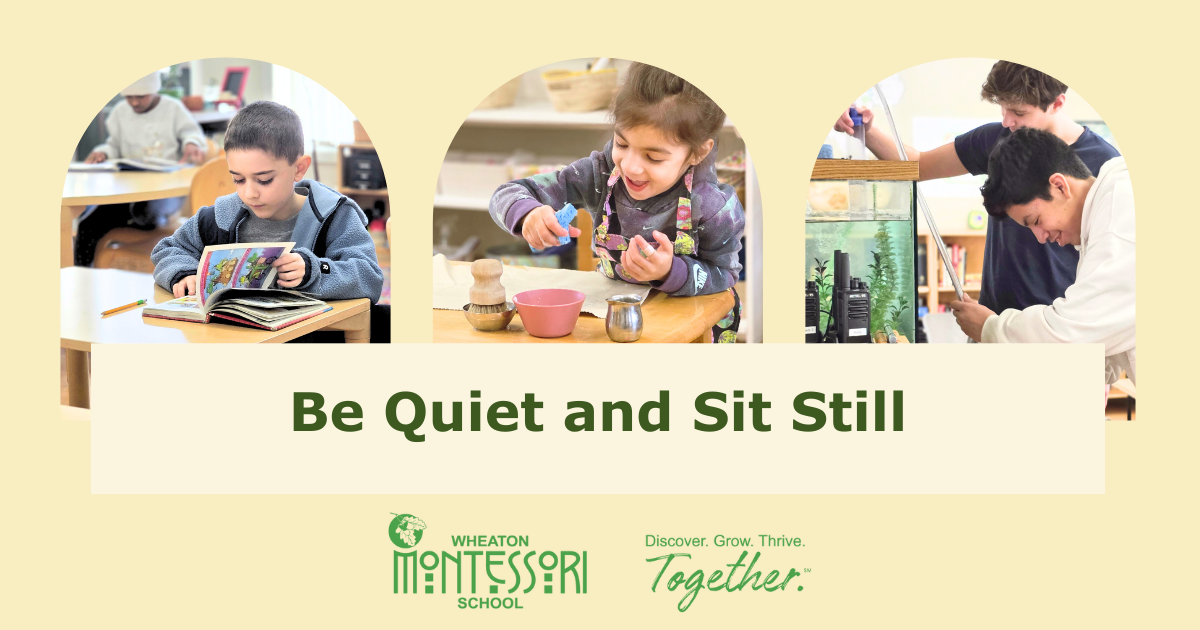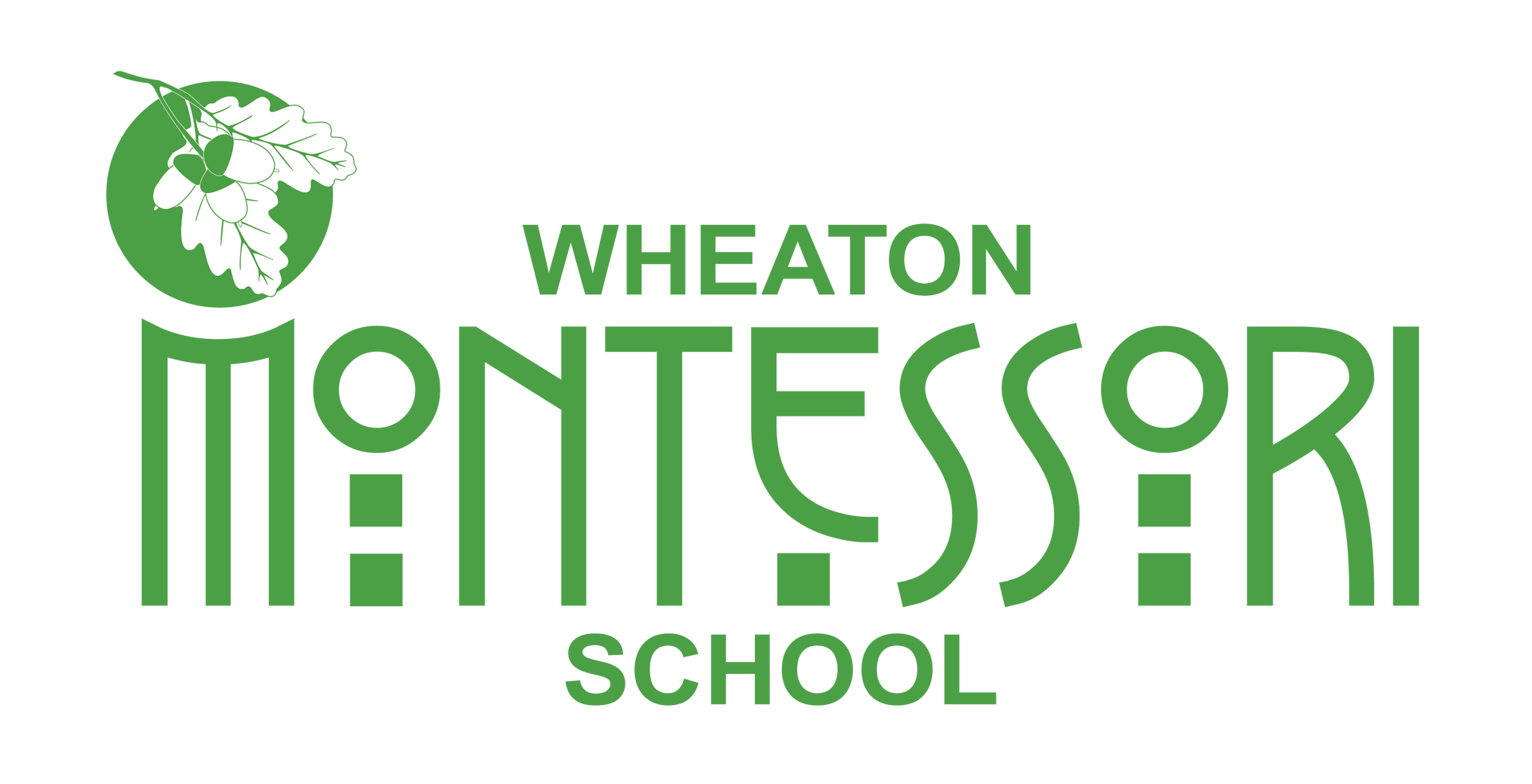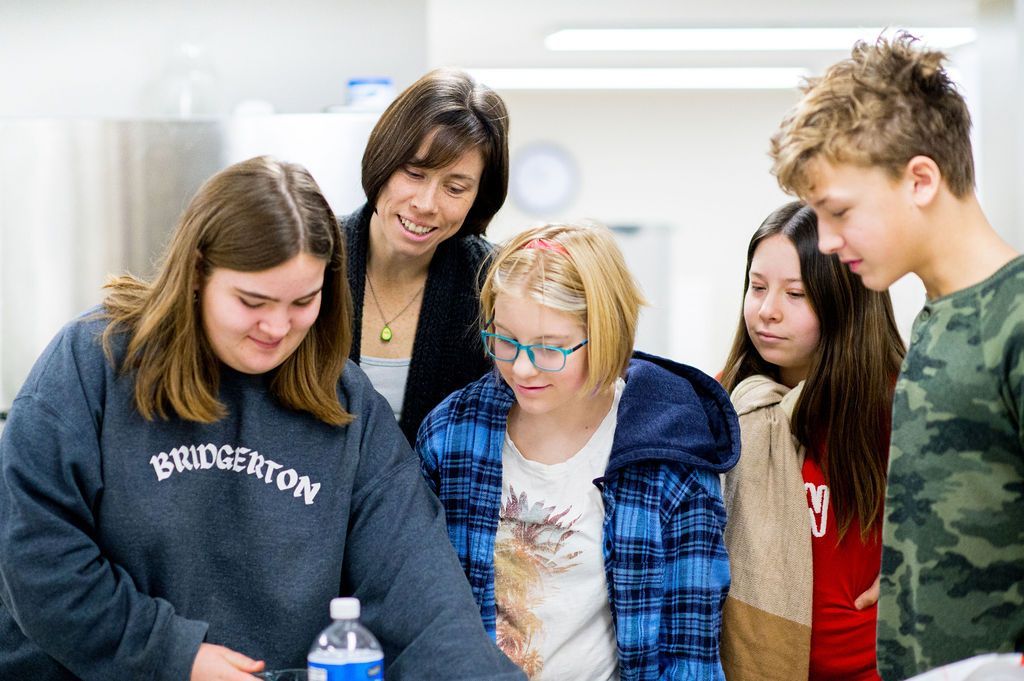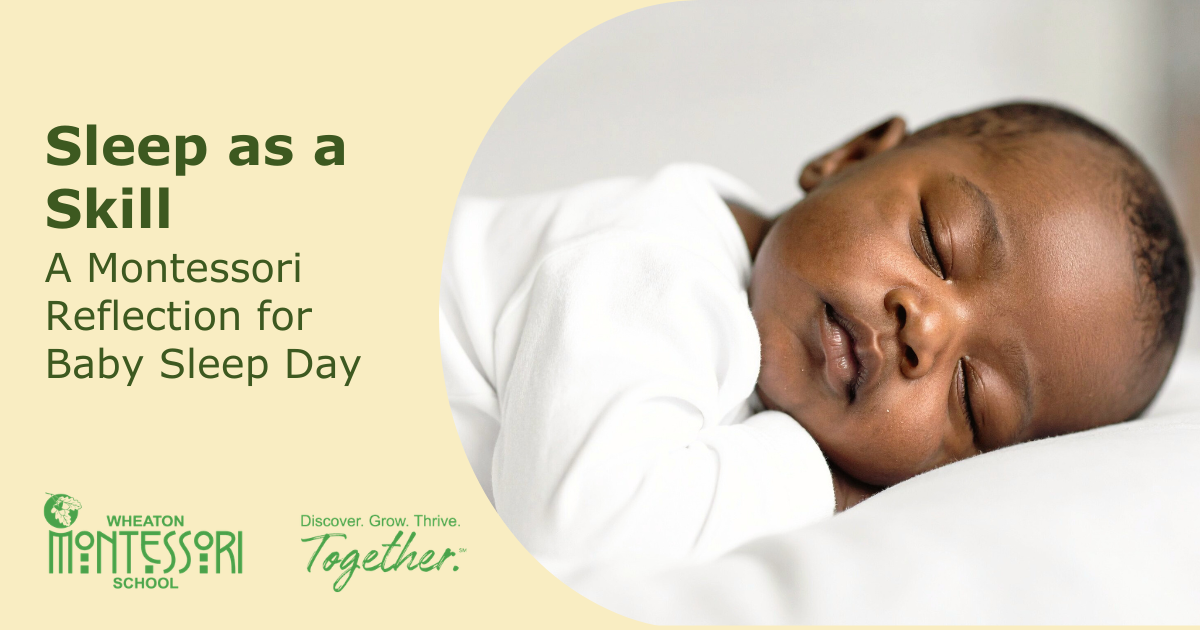By Rebecca Lingo
•
February 16, 2026
At Wheaton Montessori School, your child is guided by highly trained professionals who deeply understand child and adolescent development. Every day, thoughtful structures and intentional practices support students in using their intellect, curiosity, time, and choices successfully, so they can grow into capable, self-directed individuals. Dr. Maria Montessori never equated being “good” with silence or stillness. Our teachers do not equate being well-behaved with being quiet and sitting still. In fact, like Dr. Montessori, we believe that movement, communication, and social interaction are essential to learning. When you observe a classroom at Wheaton Montessori School, you’ll see exactly that: children moving purposefully, talking with peers, collaborating, and responsibly managing their academic work throughout the day. What may look like “freedom” on the surface is actually built upon a strong underlying structure. Students experience a sense of choice, what to work on, where to sit, how long to engage, and who to collaborate with, because the environment has been carefully prepared to support those decisions. The Power of Structure and Grace The foundation of our campus is made up of proactive lessons called Grace and Courtesy . These lessons explicitly teach students how to: Set up and return materials Respect others’ space and work Ask to observe a peer’s work Acknowledge feelings and resolve conflict respectfully These shared lessons give everyone a common language and reference point for living and learning together. Older or more experienced students model appropriate behavior, creating classrooms full of young teachers, not just the adults guiding the environment. Students always have opportunities to challenge themselves or to take a healthy break. They work and play with materials they are developmentally ready to use, ensuring success while still encouraging growth. Not a Free-For-All: A Thoughtfully Designed Community Authentic Montessori environments are often misunderstood as unstructured. In reality, our campus is carefully designed to meet the developmental needs of preschool children through high school freshmen. The structure is natural, respectful, and aligned with who children and adolescents truly are. We know learners may still experience frustration, regret, and disappointment at times. Those moments are part of learning. When a child sits beside a teacher to regroup, it may feel like a “time out” to them, but it is actually a moment of support, reflection, and connection within a safe community. When challenging behaviors arise, our teachers respond with empathy and expertise. They understand that all behavior communicates a need. Rather than relying on rewards or punishments, teachers may guide a child toward a break, offer work that better meets their developmental needs, or help them return to a centered and purposeful state. Growing Self-Discipline From the Inside Out At Wheaton Montessori School, self-discipline and regulation develop through meaningful activity. Expected behavior grows through practice within a warm, structured community. Curiosity sparks interest, interest fuels focus, and focus leads toward mastery. This process contributes to valorization, your child’s growing sense of confidence, capability, and belonging. Children who feel balanced and respected naturally behave with greater care for themselves, others, and their environment. This sums up Dr. Montessori’s limits in three rules: care for yourself, care for others, and care for your surroundings. The true outcome of this work is human development: your child and adolescent’s identity, agency, purpose, and love of learning. When they understand big ideas and see themselves as capable contributors, they grow in ways that last a lifetime.
